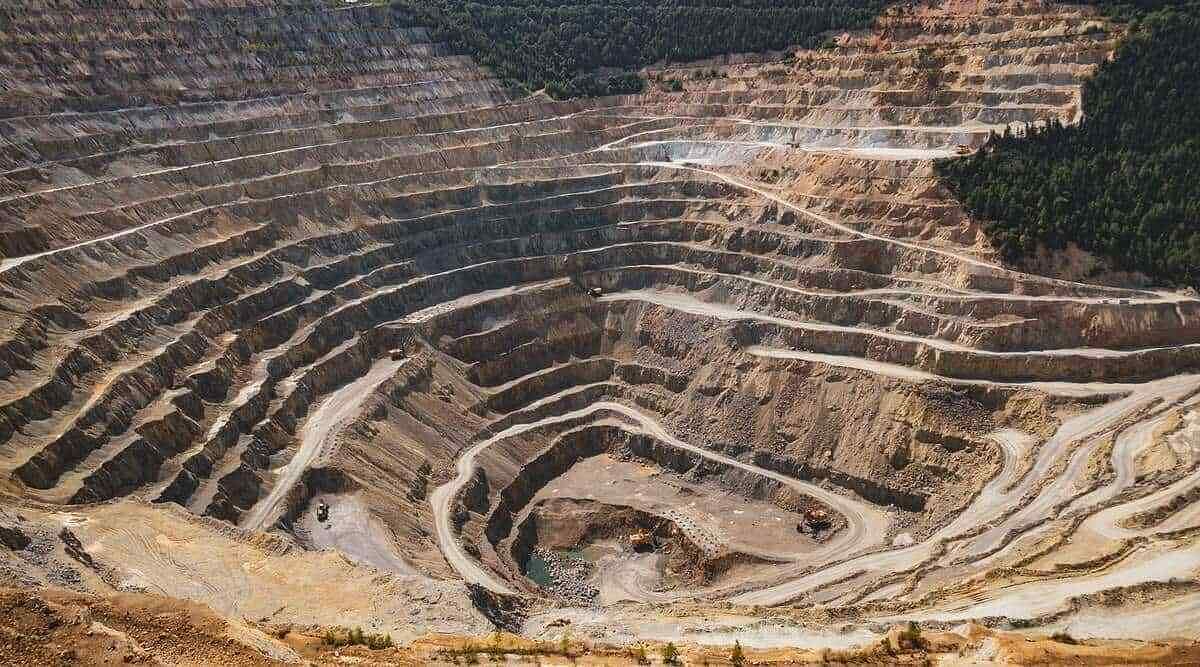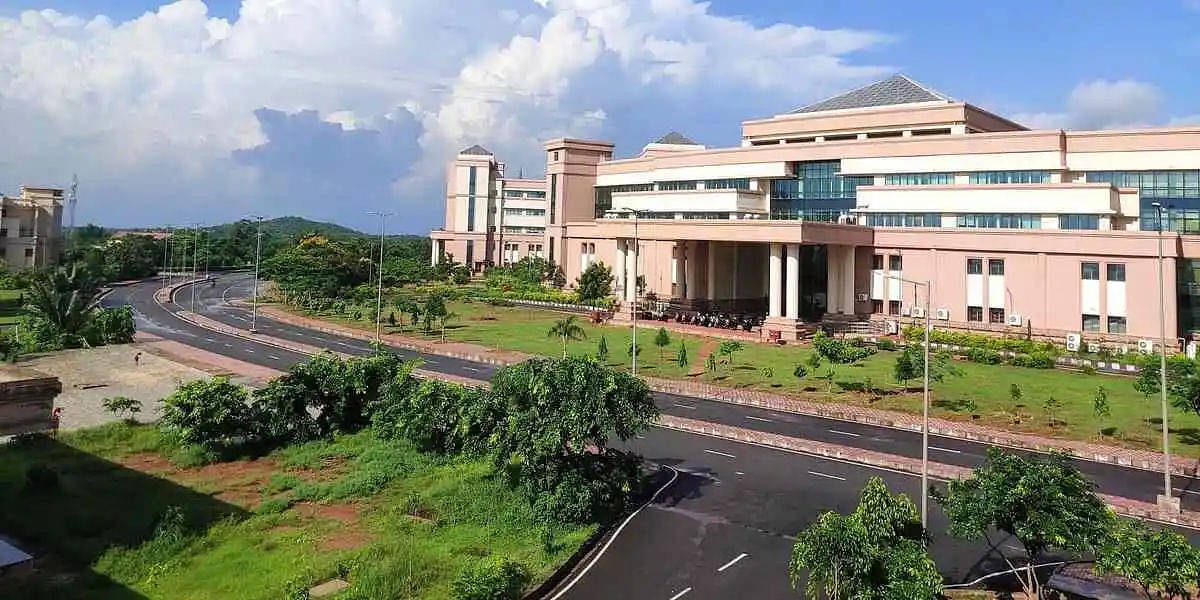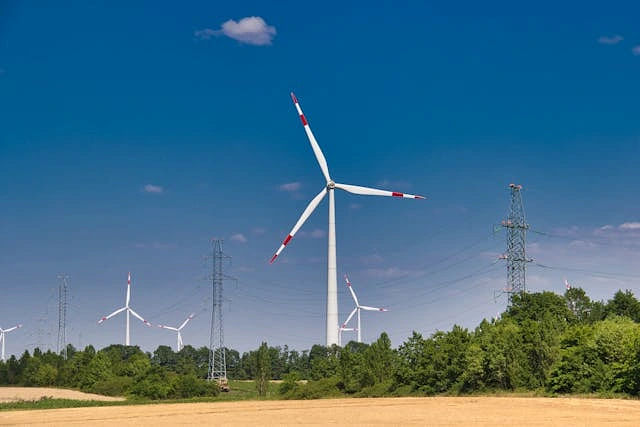Explore the key differences between MA and MSc, from course details, and top colleges to salary potential, and find out which path suits your academic and professional goals.
MA vs MSc: The difference between MA and MSc can be challenging to understand as each degree serves different interests and career goals. MA vs M.Sc programs differ mainly in their focus: MA course is based on subjects like literature, history, and social sciences, focusing on theoretical and critical thinking.
On the other hand, the M.Sc course concentrates on scientific and technical fields, such as biology, chemistry, and engineering, which inclines towards practical skills and research. The key differences between MA and M.Sc, including their course structures, career opportunities, and salary potential help the aspirants decide which is right for them.
What is MA?
Master of Arts (MA) is a postgraduate degree focusing on humanities, social sciences, and liberal arts. It involves in-depth fields of study such as literature, history, sociology, and philosophy. This program is designed to develop advanced skills in research, writing, and analytical thinking.
MA graduates can anticipate a career in education, public policy, media, and other fields where strong communication and analytical skills are required. Some institutions include internships, projects, and thesis in the MA programs to include practical components on the respective field of study.
Read More: MA Syllabus and Subjects
What is M.Sc?
Master of Science (M.Sc) is a postgraduate degree that focuses on scientific, technical, and quantitative disciplines. It provides advanced knowledge and skills in fields such as physics, chemistry, biology, maths, and engineering. The program includes meticulous coursework, practical lab work, research papers, and projects.
M.Sc graduates can look forward to careers in technical and scientific fields, including engineering, biotechnology, data science, and environmental science. The course curriculum is designed to develop strong analytical and problem-solving skills necessary to prove complex scientific and technological difficulties.
Read About: M.Sc Syllabus and Subjects
MA and M.Sc Key Differences
The key differences between MA and M.Sc are listed in the table below from various angles for the students to know and choose which is the best option for them to pursue as their higher education.
| Distinction | MA | M.Sc |
| Focus | Humanities, social sciences, and liberal arts | Scientific, technical, and quantitative fields |
| Curriculum | Theoretical analysis, critical thinking, qualitative research | Practical skills, research methodologies, quantitative analysis |
| Specializations | Literature, History, Sociology, Philosophy, Education | Physics, Chemistry, Biology, Mathematics, Engineering |
| Practical Learning Tools | Theoretical research, essays, and projects | Experimental research and data analysis |
| Career Paths | Education, media, public policy, counselling, arts | Research, engineering, technology, data science, technical roles |
| Entrance Exams | DUET, JNUET, TISSNET, UGC-NET | JAM, GATE, JNUET, BHU PET, ISI Admission Test |
| Coursework | Seminars, discussions, and case studies | Lab work, fieldwork, and technical projects |
| Course Duration | 1 to 2 years | 2 years |
MA vs MSc Course Structure
The course structure for MA vs M.Sc is for the students to understand what is expected out of them while pursuing any particular course. The table mentioned below has a list of common aspects in which the course structure for MA vs M.Sc is explained to the students.
| MA | M.Sc |
| Core Courses on humanities, social sciences, or liberal arts. | Core Courses on Advanced Mathematics, Experimental Chemistry, Theoretical Physics. |
| Elective Courses based on respective fields of study | Elective Courses like bioinformatics, environmental science, or computational methods. |
| Seminars and Workshops or discussion, analysis, and presentation of research topics. | Practical lab sessions for conducting experiments and applying theoretical knowledge. |
| Research Project Dissertation or thesis involving critical analysis and scholarly writing. | Research papers or Thesis on original research, data collection, and analysis, leading to a written thesis. |
| Assessment using essays, research papers, and written exams for theoretical and analytical skills. | Assessments on problem sets, practical assessments, and exams to test theoretical knowledge and practical skills. |
Also Read: M.Sc Syllabus
MA vs M.Sc Degree Deferences
MA and MSc programs include specializations that are tailored to fit different fields of study. The candidates can check the list of MA vs M.Sc specializations from the table mentioned below along with their majors.
| Degree | Major | Specializations |
| MA | Social Sciences | Sociology, Political Science, International Relations |
| Humanities | English Literature, History, Philosophy | |
| Education | Curriculum and Instruction, Educational Leadership | |
| Creative Arts | Theatre, Film Studies, Fine Arts | |
| Language | Hindi, Tamil, English, Sanskrit, French | |
| Cultural Studies | Gender Studies, Media Studies, Cultural Heritage | |
| Counselling and Psychology | Clinical Psychology, Counseling Psychology | |
| Public Policy | Development Studies, Public Administration | |
| MSc | Natural Sciences | Physics, Chemistry, Biology |
| Mathematics and Statistics | Pure Mathematics, Applied Mathematics, Data Science | |
| Environmental Science | Ecology, Environmental Management | |
| Engineering and Technology | Computer Science, Electrical Engineering, Mechanical Engineering | |
| Life Sciences | Biotechnology, Microbiology, Biochemistry | |
| Health Sciences | Epidemiology, Public Health | |
| Materials Science | Nanotechnology, Polymers | |
| Geosciences | Geology, Meteorology, Oceanography |
Also Read: MA Syllabus
MA vs M.Sc Entrance Exams
MA and MSc programs require specific entrance exams for admission. MA programs have entrance exams such as DUET and JNUET, focusing on subjects related to humanities and social sciences. Whereas, in MSc entrance exams like JAM and GATE are required.
The table mentioned below has a list of entrance exams along with which university is accepting the said exams.
| Degree | Entrance Exam | Institutions |
|
MA
|
DUET | University of Delhi |
| JNUEE | Jawaharlal Nehru University | |
| TISSNET | Tata Institute of Social Sciences | |
| UGC-NET | Various universities for research and teaching eligibility | |
|
MSc
|
JAM | IITs, IISc |
| JNUEE | Jawaharlal Nehru University | |
| GATE | Various institutes for engineering and technology | |
| BHU PET | Banaras Hindu University | |
| ISI Admission Test | Indian Statistical Institute |
MA and M.Sc Admission Criteria
The admission criteria for MA and M.Sc are more or less similar as both are postgraduate degrees pursued with specific fields of study. The list of admission criteria is mentioned in the pointers below for the students to know.
- Requires a relevant undergraduate degree with a minimum of 55% to 60% or 6 CGPA.
- Some programs may require entrance exams such as DUET, CUET PG, IIT JAM, etc.
- Certain institution which offers MA or M.Sc programs may include personal interviews or group discussions.
- The candidates must submit the application form along with the necessary documents and registration fee payment receipt.
Read More: MA Admission
MA vs. M.Sc Top Colleges in India
Top colleges offering MA vs MSc programs include a range of specializations tailored to fir diverse fields of study. Top colleges offering MA vs M.Sc programs provide extensive specializations in fields like social sciences, humanities, and education.
Top MA Colleges in India
MA programs in most prestigious institutions like Jawaharlal Nehru University and the University of Delhi, focusing on humanities and social sciences are the first choice of students. The table mentioned below has a list of top MA colleges in India along with their courses offered, and tuition fees.
| College Names | Courses Offered | Tuition Fee (INR) |
| Jawaharlal Nehru University (JNU) | MA in Social Sciences, MA in Economics | 20,000 - 30,000 |
| University of Delhi (DU) | MA in English, MA in History | 10,000 - 20,000 |
| Banaras Hindu University (BHU) | MA in Sociology, MA in Philosophy | 15,000 - 25,000 |
| Tata Institute of Social Sciences (TISS) | MA in Social Work, MA in Development Studies | 30,000 - 50,000 |
| Ambedkar University Delhi (AUD) | MA in Gender Studies, MA in Culture and Media Studies | 20,000 - 30,000 |
| Aligarh Muslim University (AMU) | MA in English, MA in Political Science | 15,000 - 25,000 |
| University of Hyderabad (UoH) | MA in English, MA in Sociology | 20,000 - 30,000 |
| Jadavpur University | MA in International Relations, MA in English | 20,000 - 30,000 |
| Delhi School of Economics (DSE) | MA in Economics, MA in Development Economics | 25,000 - 40,000 |
| Madras University | MA in History, MA in Economics | 15,000 - 25,000 |
Read More: Top MA Colleges in India
Top M.Sc Colleges in India
MSc programs are prominent in institutions such as the Indian Institute of Science and IITs, which emphasize technical and scientific knowledge for students. The table mentioned below has a list of top M.Sc colleges in India along with their courses offered, and tuition fees.
| College Names | Courses Offered | Tuition Fee (INR) |
| Indian Institute of Science (IISc) | MSc in Physics, MSc in Chemistry | 30,000 - 50,000 |
| University of Delhi (DU) | MSc in Mathematics, MSc in Biochemistry | 15,000 - 25,000 |
| Indian Statistical Institute (ISI) | MSc in Statistics, MSc in Mathematics | 20,000 - 40,000 |
| Jawaharlal Nehru University (JNU) | MSc in Environmental Science, MSc in Life Sciences | 20,000 - 35,000 |
| Banaras Hindu University (BHU) | MSc in Physics, MSc in Microbiology | 15,000 - 25,000 |
| University of Hyderabad (UoH) | MSc in Physics, MSc in Biotechnology | 20,000 - 30,000 |
| IIT Bombay | MSc in Mathematics, MSc in Physics | 25,000 - 45,000 |
| IIT Delhi | MSc in Chemistry, MSc in Mathematics | 30,000 - 50,000 |
| Jadavpur University | MSc in Chemistry, MSc in Geology | 20,000 - 30,000 |
| Aligarh Muslim University (AMU) | MSc in Physics, MSc in Chemistry | 15,000 - 25,000 |
Read More: Top M.Sc Colleges
MA vs M.Sc Job Opportunities
The MA vs M.Sc degree differences extend to job opportunities as well. MA graduates look for jobs based on academics, creativity, and public relations. Whereas M.Sc graduates look for jobs based on research, scientific ventures, clinical trials, and so on.
The students can check the list of job roles along with top recruiters for both the MSc vs MA career prospects for the graduates in the table given below.
MA Jobs, and Top Recruiters
The jobs, scope, and top recruiters for MA graduates are listed below in the table for the students to know the career advancements after graduation.
| Job Role | Top Recruiters |
| Content Writer | Times of India, The Hindu, BBC |
| Social Worker | NGOs like CRY, Oxfam, UNICEF |
| Public Policy Analyst | Government bodies, Think Tanks |
| Marketing Manager | Procter & Gamble, Unilever |
| Education Consultant | Educational Institutions, EdTech Companies |
| Human Resources Specialist | IBM, Infosys, TCS |
| Journalist/Reporter | NDTV, Al Jazeera, Reuters |
| Cultural Manager | Art Galleries, Cultural Institutions |
| Researcher | Universities, Research Institutes |
| Public Relations Specialist | Edelman, Weber Shandwick |
Read More: MA Jobs, Salary, and Scope
M.Sc Jobs, and Top Recruiters
The jobs, scope, and top recruiters for M.Sc graduates are listed below in the table for the students to know the career advancements after graduation.
| Job Role | Top Recruiters |
| Data Scientist | Google, Amazon, IBM |
| Biotechnologist | Biotech Firms, Pharmaceutical Companies |
| Environmental Scientist | Environmental Agencies, NGOs |
| Software Engineer | Microsoft, Infosys, Oracle |
| Research Scientist | Research Labs, Academic Institutions |
| Clinical Research Associate | Pharmaceutical Companies, CROs |
| Machine Learning Engineer | Tesla, NVIDIA, Facebook |
| Chemical Analyst | Chemical Manufacturing Companies |
| Systems Analyst | Tech Companies, Consulting Firms |
| Actuary | Insurance Companies, Financial Firms |
Read More: M.Sc Jobs, Salary, and Scope
MA vs M.Sc Salary Potential
The salary potential for MA and MSc graduates varies significantly based on the field and role. MA graduates often find opportunities in sectors like education, media, and public policy, with salaries generally ranging from INR 3 to 12 lakhs per year.
In contrast, MSc graduates enter technical and scientific fields, where salaries can range from INR 4 to 15 lakhs per annum, for specialized skills in research and technology.
MA Salary
The MA graduates can check the job roles along with the salary range from the table mentioned below.
| Job Role | Salary Range (INR) |
| Content Writer | 3 Lakhs - 8 Lakhs |
| Social Worker | 2.50 Lakhs - 6 Lakhs |
| Public Policy Analyst | 5 Lakhs - 10 Lakhs |
| Marketing Manager | 6 Lakhs - 15 Lakhs |
| Education Consultant | 4 Lakhs - 9 Lakhs |
| Human Resources Specialist | 3.50 Lakhs - 8 Lakhs |
| Journalist/Reporter | 3 Lakhs - 10 Lakhs |
| Cultural Manager | 4 Lakhs - 10 Lakhs |
| Researcher | 3 Lakhs - 8 Lakhs |
| Public Relations Specialist | 4 Lakhs - 9 Lakhs |
M.Sc Salary
The M.Sc graduates can check the job roles along with the salary range from the table mentioned below.
| Job Role | Salary Range (INR) |
| Data Scientist | 6 Lakhs - 15 Lakhs |
| Biotechnologist | 5 Lakhs - 12 Lakhs |
| Environmental Scientist | 4 Lakhs - 10 Lakhs |
| Software Engineer | 5 Lakhs - 15 Lakhs |
| Research Scientist | 5 Lakhs - 12 Lakhs |
| Clinical Research Associate | 3.50 Lakhs - 8 Lakhs |
| Machine Learning Engineer | 6 Lakhs - 15 Lakhs |
| Chemical Analyst | 4 Lakhs - 10 Lakhs |
| Systems Analyst | 5 Lakhs - 12 Lakhs |
| Actuary | 6 Lakhs - 14 Lakhs |
Read More: M.Sc + Ph.D Jobs and Salary
M.Sc vs MA: Which is Better?
Choosing between an M.Sc and an MA depends on your career goals and academic interests. M.Sc program suits those seeking careers in scientific, technical, or research-oriented fields, offering hands-on experience and advanced technical skills. It often leads to higher starting salaries and specialized roles in industries like data science, engineering, and biotechnology.
Whereas, an MA program is apt for those who are interested in humanities, social sciences, or creative fields, focusing on theoretical analysis and critical thinking. This program offers roles in education, media, and public policy expertise on qualitative research and communication skills.
Ultimately, the choice between an M.Sc and an MA should align with your long-term goals, career opportunities, growth scale, and financial aspects.
Also Read: MBA vs M.Sc: Which is Better?










